X-Men '97: Season One Review
A nostalgia-wrapped animation that elevates not only the medium but the Marvel's output. A hard-hitting, comics-accurate, inspired season of television that elevates both the material and the characters, and raises the bar for any future X-Men project. An omega-level triumph.
REVIEWSTV
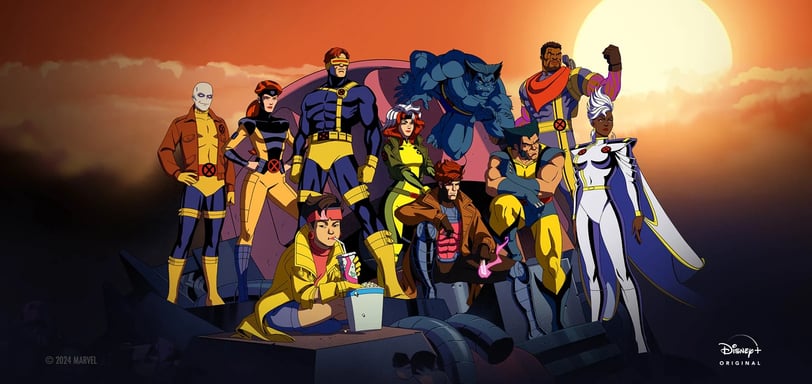

--- Spoilers throughout ---
“How many?” asks Scott Summers as he runs in. The other X-Men watch the news, horrified by the images being broadcast. Jean covers her mouth, Beast buries his head in his hands, and even Wolverine looks numb. Scott, in anger, asks again: “How many, God damn it!?”
But no one answers. And no one can help, as they watch the mutant nation of Genosha burn. Millions are dead… and the X-Men didn't even have the opportunity to stop this massacre.
I’ve had X-Men ’97 on my radar since it was first announced years ago, more as an MCU completionist curio than one of my most anticipated projects. Seeing the return of the animated show that got me into comic books was cool, but rewatching the older seasons revealed they were very much a product of their time.
The multi-episode storytelling and more adult themes certainly raised it above other kids’ programs in the 90s, but the dated animation style and dodgy dialogue made it something I had decided to leave in the past. It felt like a strange decision for this to be the first X-Men project in the MCU.
I was completely wrong.
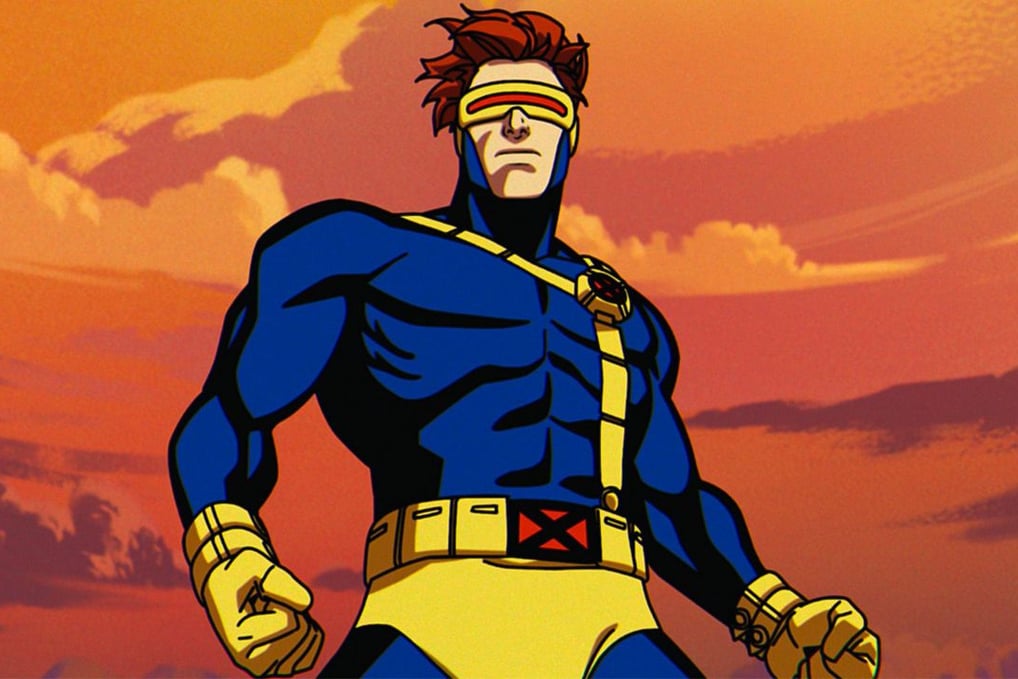

Photo: Disney
Cyclops has never been this cool
After ten mostly spectacular episodes and the single best moment in television so far this year, I have to say reviving X-Men: The Animated Show was an inspired choice. It revitalizes the mutants at just the right time.
Showrunner and writer Beau DeMayo succeeds in the complex dance of balancing nostalgic elements with a push towards modernity. He keeps the killer theme tune—a decision that would’ve doomed the show had he failed to—and keeps the show steeped in the 90s while ensuring that the animation, storytelling, and characters are far more modern.
DeMayo is a clear comics fan, willing to adapt decades' worth of stories, digging deep into the past while touching on modern eras. The Goblin Queen, Inferno, Lifedeath, Mutant Massacre, and Operation: Zero Tolerance are all adapted, with hints towards storylines that future seasons will utilize.
While many longtime fans might see the ultimate reveals coming, DeMayo skillfully avoids making any storyline a direct adaptation. After the devastating events of the fifth episode, many expected Cassandra Nova ultimately responsible, as she was in the comics. However, DeMayo instead uses this event to set up an even greater foe.
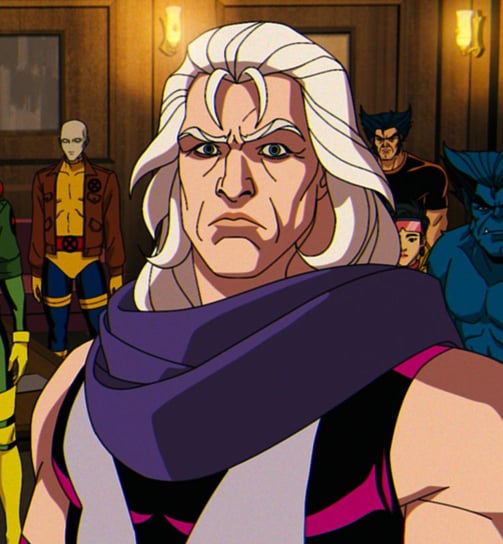

X-Men ’97 packs a lot into each episode too. This occasionally leads some storylines to feel overstretched, but overall, it’s a remarkable sleight of hand that leaves the viewer in awe of the show’s scope. Saying that, the finale demonstrates that veering away from strict adherence to 30-minute runtimes allows more time for character arcs and storylines to naturally develop.
‘Fire Made Flesh’ and ‘Lifedeath – Part 2’ both could have benefited from a longer run-time or even being two-parters. Out of the ten, the only episode that didn’t really land was the fourth’s double-bill of ‘Motendo/Lifedeath – Part 1’, with the ‘Motendo’ portion overly reliant on nostalgia and coming across more like a filler issue.
These critiques are quite nitpicky as what the show manages to achieve within its ten-episode run is remarkable. Much of this success stems from one of DeMayo’s best decisions: making this X-Men show, an X-Men show. Across the season, Wolverine is the most sidelined character—though the final shot of episode nine teases a bigger arc next time—and this is to the show’s credit.
Photo: Disney
Magneto is the MVP for much of the season
I love Wolverine and cannot wait for the third Deadpool film, but he’s been central to X-Men’s screen adaptations for far too long. By shifting the focus, we get a more varied, exciting X-Men show that can raise the stakes whilst delving into the comic history of many more of its eclectic characters.
Cyclops finally gets to be interesting and show why he’s the X-Men’s leader. Storm has the most badass introduction possible and then a strong personal journey in 'Lifedeath'. Nightcrawler, who is a major player in the season’s second half, is epic whenever he’s on screen, and we finally get to see his trio of swords.
There’s no soft reboot of the show to make it more accessible to new viewers (though it’s clear subtle character tweaks have been made), and it’s quite happy to continue storylines set up three decades ago.
We finally get (some) closure on when Mr. Sinister swapped Jean Grey with Madeline Pryor. Nathan/Cable gets to connect with his parents. And Professor X finds true love in outer space before he’s naturally brought back to Earth after the events in Genosha. Even if you rely on the ‘previously on’ sections to catch you up, I doubt you’ll feel shortchanged.
The biggest and best arc of the show is the season-long story that belongs to Magneto. After Charles’ apparent death, he’s given control of Xavier’s school. Naturally, this lands like a lead balloon with the X-Men, particularly aggrieving Cyclops, who felt like he should be given charge.
This leads to multiple episodes with Magneto legitimately joining the team and giving Charles’ way a chance, which leads to his apparent sacrifice.
His brief dalliance with the good guys unravels when the season’s big bad, Bastion, captures the Master of Magnetism. This leads to Magneto EMP’ing the Earth before ripping the adamantium out of our favourite scruffy Canadian.
Magneto’s story is a heart-wrenching core to the season, with the character performed with earnestness and compassion by Matthew Waterson, replacing the late David Hemblen. The voice acting is impeccable throughout. Marvel made the right decision in bringing back as much of the original cast as possible, and they all fall back into character, adding more depth to these roles. When a recast was necessary, the replacements were respectful to the earlier performances without being carbon copies.
It’s all sublimely delivered, and I dare anyone not to well up at Lenore Zann’s exquisite delivery of the words: ‘Sugar… I can’t feel you.’
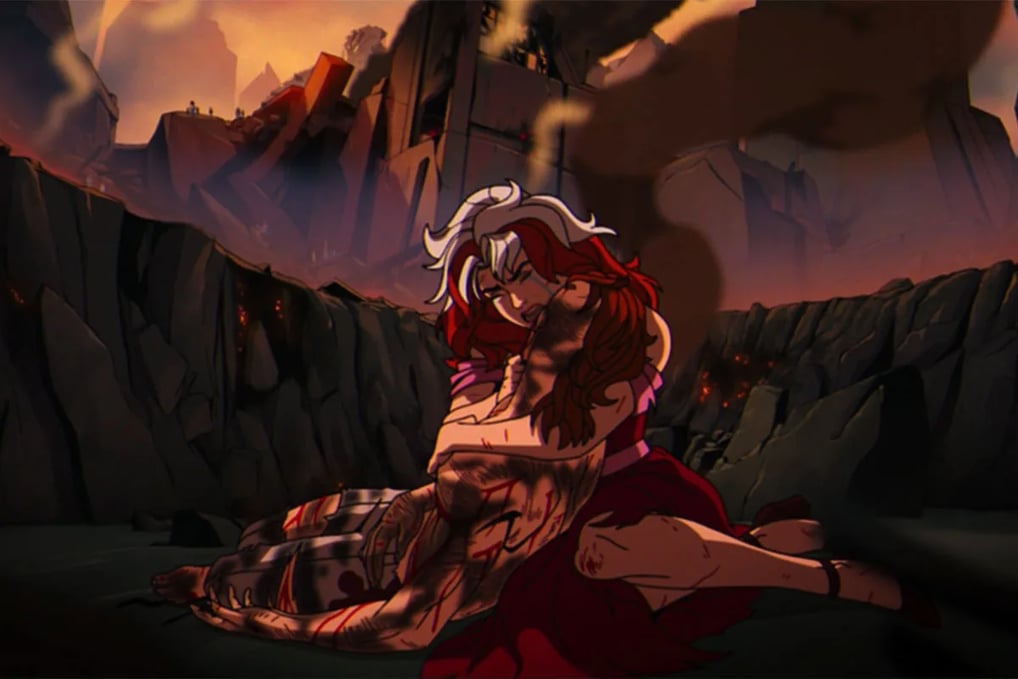

Photo: Disney
"Sugar... I can't feel you."
The quality sells the dialogue even when it’s in full batshit X-Men time-traveling comic book mode. The quality of the scripts is phenomenal and clearly written by someone with an innate love for the property. The show understands the melodramatic nature of the X-Men and never loses sight of the relationships, even when the stakes are extinction-level.
I’ve danced around this moment a few times, but the ending of Episode Five is one of the best moments in television, period. The entire episode builds up beautifully, initially showcasing the nation of Genosha—a perfect representation of Charles’ vision if there ever was one—before hurtling towards a heart-shattering climax that has meaning far beyond the world of the show.
Watching Magneto, Rogue, and Gambit’s attempts to save as many as possible as a hybrid Master Mold/wild sentinel eviscerates any mutant it can is visceral.
It’s a monster film, it’s a 9/11 homage, it’s a comment on how marginalized societies are never truly safe. It’s the creator pulling their anger and rage after the Pulse nightclub shooting into the show. It’s brutal, heart-wrenching, and like nothing I’ve ever seen in any animated show before.
Watching Magneto give his life to protect other mutants from oppression hits hard. Watching Rogue go Super Saiyan at his death hits hard. Watching Gambit fling a motorcycle at her to save her life, then charge the towering sentinel and blow it up through his superpowered touch, hits hard.
The closing moments of episode five are a simply magnificent slice of television that equals the best moments in any prestige show.
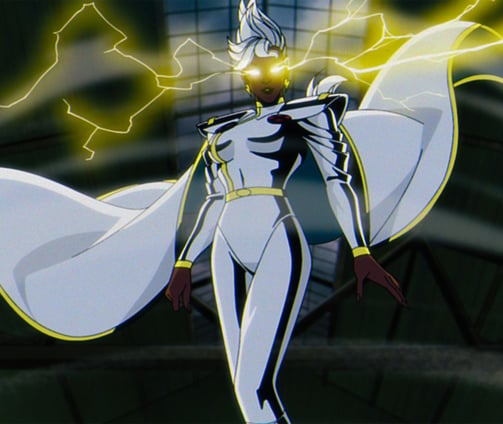

Clearly, the attack on Genosha overshadows the remaining five episodes as the X-Men grapple with the unthinkable loss of life. Much like Avengers: Endgame, the show is content to let us wallow in the misery, to clearly show the impact of this loss before any solution becomes apparent. First, by shifting focus to Storm’s journey to recover her power and then by allowing us to see the wreckage of Genosha and the devastation that remains.
The three-part finale finally puts the show’s big bad centre stage. Bastion, a human-robot hybrid played with a cool, calculated demeanour by Theo James, with a plan of action that truly tests the X-Men. His ultimate downfall might be a bit of a deus ex machina—if that even is his downfall—but as the finale shifts focus to Charles and Eric’s long-term relationship and humans' fear of mutants ultimately putting their own world at risk, it doesn’t cop out with its conclusion.
Photo: Disney
Epic moments for almost every character
We’re left with the knowledge that a Season 2 is happening, and more may be ordered shortly. If future seasons deliver stories of this quality, then I look forward to many, many more years of the high-stakes soap opera drama of the X-Men. It’s now on the upcoming live-action projects to try and be anywhere near as good.
⭐⭐⭐⭐⭐
